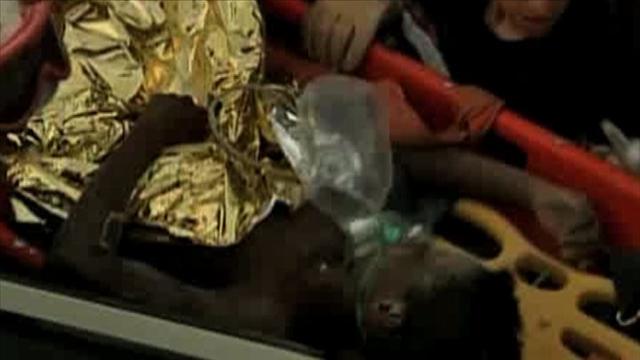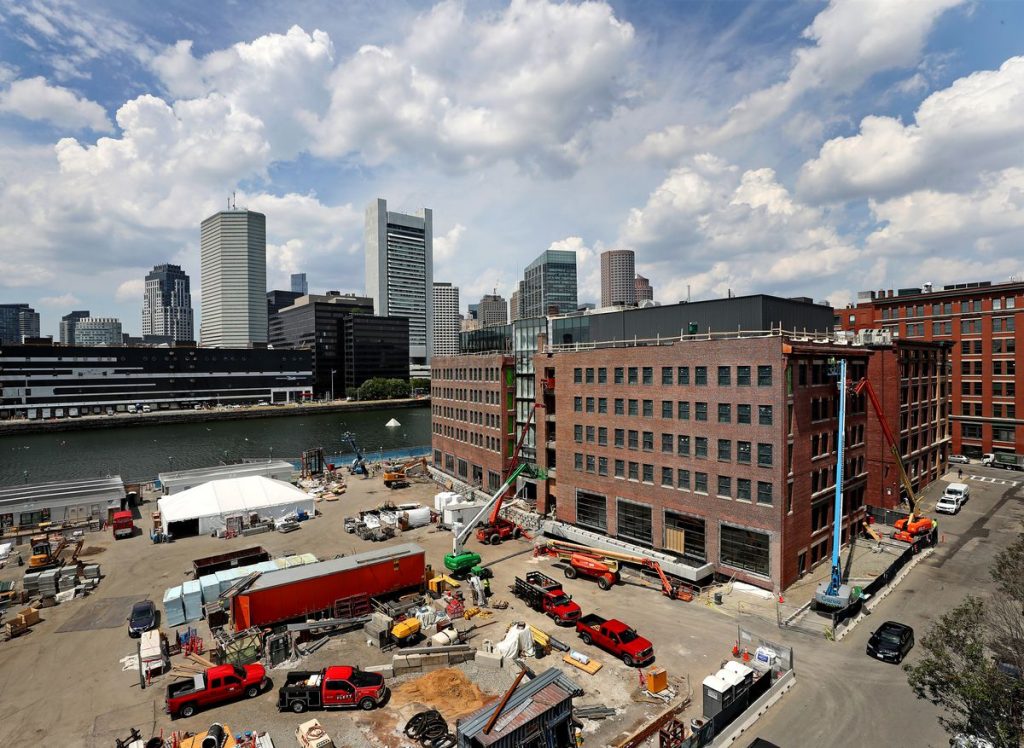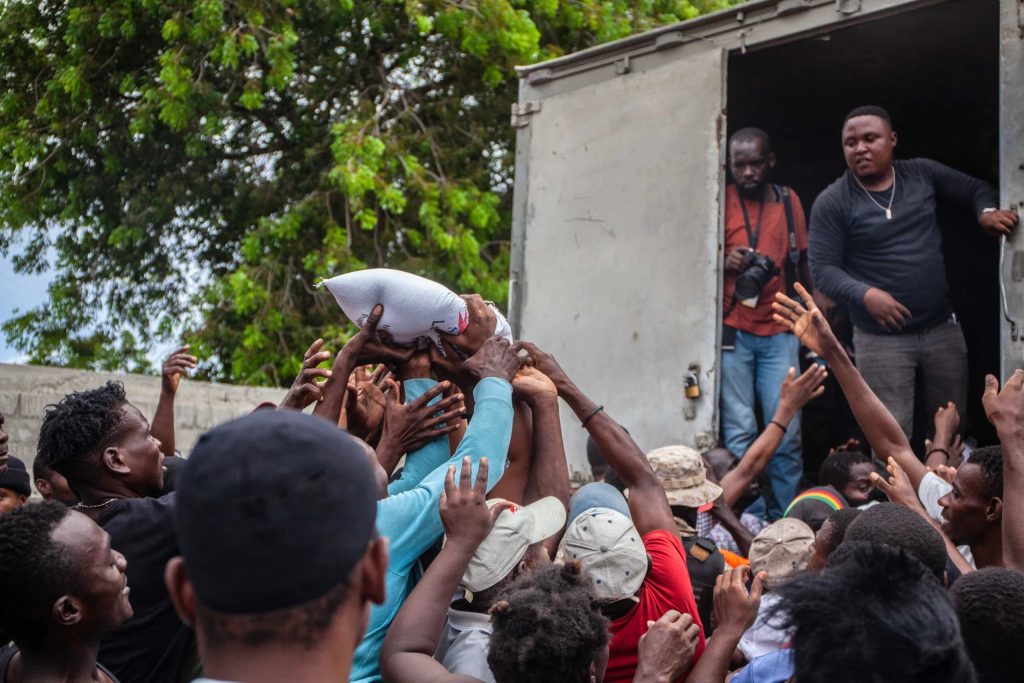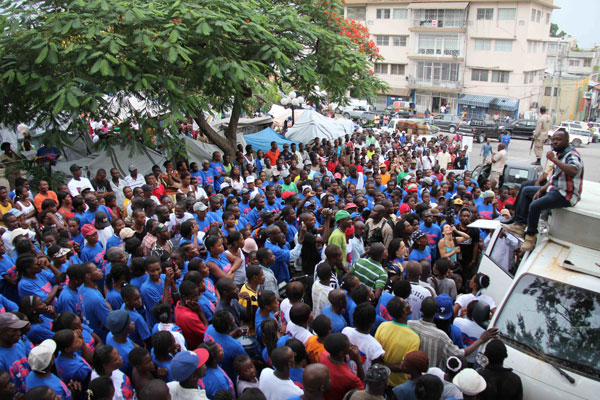PORT-AU-PRINCE (Reuters) – Haiti appealed to foreign governments and charities on Wednesday to do more to help earthquake victims as rescuers pulled a teenage girl out of the rubble 15 days after her Port-au-Prince home collapsed around her.
The girl, named Darline and believed to be 16, was severely dehydrated and had a leg injury, French and Haitian rescuers said. “I don’t know how she happened to resist that long. It’s a miracle,” said rescue worker J.P. Malaganne.
The girl was one of more than 130 people rescued alive since the January 12 quake devastated Haiti’s coastal capital, killed as many as 200,000 and threw the country into chaos.
President Rene Preval said Haiti would indefinitely postpone February 28 parliamentary elections and he would not seek to stay in office after his term expires in February 2011.
That means his government will have just over one year to rebuild the impoverished Caribbean nation before handing off the task to new leadership.
Aid groups and troops from around the world have struggled to distribute food, water and medical care to an estimated 3 million Haitians injured or left homeless in the magnitude-7.0 earthquake.
“I am not in a position to criticise anybody, not in the least people who have come here to help me,” Preval told a news conference. “What I am staying is, what everybody is saying is, that we need a better coordination.”
Some food handouts have turned ugly, with U.N. peacekeepers using tear gas and warning shots to control jostling crowds. People housed in ragtag encampments around Port-au-Prince have complained that no food has reached them. Some have expressed anger at Preval for failing to play a more public role and sending few workers to remove garbage and feed the homeless.
“In my job, we have two ways of doing things,” Preval told Reuters in an interview. “In the way politicians traditionally do, you go to the hospitals, you cry with the victims. Or you can sit, and work, and find the right way to bring assistance to the people. I chose to do the second.”
HOW TO REBUILD
Preval said he believes Haiti must decentralize.
“Long term, we need to create jobs in the provinces,” he told Reuters. “Because we run the risk of having overcrowded big cities, with anarchic construction and the risk that the same thing could happen again.”
He acknowledged the intense task ahead — 20,000 commercial buildings have collapsed or must be razed, as well as 225,000 residences. However, he said Haiti has begun to come back.
“On the 13th of January, we woke up without telephones, with thousands of dead on the streets, and today telephones are working, there are no more bodies in the streets. We have collected more than 150,000, but there are still bodies under the rubble and will see how we can get them,” he said.
“Gas stations are working normally, commercial activities have resumed. In 15 days, a lot of progress has been made.”
At the news conference, Preval said he was grateful for fund-raising around the world and tried to ease concerns that government corruption might siphon off aid.
“The Haitian government has not seen one cent of that money that has been raised for Haiti. I presume that that means the money is going to NGOs,” he said, referring to non-governmental aid groups.
BLACK MARKET AND HEALTH CHALLENGES
Ministers have been fighting high prices linked to scarcity after the quake. Finance Minister Ronald Baudin said the price of rice has dropped. “And now that we are taking measures to make sure everything is available, I think prices will reflect the realities of the market,” he said.
Doctors in Haiti say the quake had created a litany of serious health problems, including perhaps tens of thousands of new amputees. With so many hospitals and clinics destroyed, there was little chance they would get the therapy they need, doctors said.
In Washington, the International Monetary Fund approved an additional $102 million (63 million pounds) in funding for Haiti and said it would disburse $114 million to the government by the end of the week to help with rebuilding after the earthquake.
The IMF also said 80 percent of Haiti’s textile capacity was capable of operating despite quake damage and textile exports were expected to resume as soon as seaport damage is repaired. Most textile facilities are outside Port-au-Prince.
Preval bristled at suggestions that the influx of foreign troops threatened Haitian sovereignty.
“We are talking about people suffering and you are talking about ideology,” he told a journalist who raised the issue at the news conference.
(Additional reporting by Joseph Guyler Delva in Haiti and Lesley Wroughton in Washington; Writing by Jane Sutton; Editing by Doina Chiacu)





